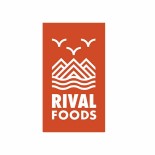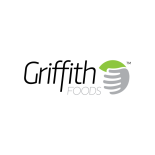Growing numbers of associations and food producers are developing scoring systems for the nutritional and environmental impact of products. Always with the focus on getting consumers to act by informing them as best possible. Are we on the way to a single overall score that’s capable of helping us make better choices on our plates? The dietary transition plan is clear: eat better and eat more sustainably.
Dietary transition: informing consumers
Given the depletion of natural resources, consumers and producers will need to address this dietary transition together. It consists of a diet in which consuming plant protein is more important than it is today. Buyers who want to speed up this dietary transition need simple information when making their choices.
We also applaud the approach taken by the Ferme France association, who wants a societal score for all products with regular consumption. It’s a unique and overall score that integrates 6 parameters, namely:
- environmental impact
- traceability
- nutritional and human health quality
- animal welfare and working conditions
- equity and contribution to the (French) economy
- public interest
One simple and reliable, informative score for the consumer that would inform him or her about the societal performance of the products.
Nutritional score – as simple as it sounds?
At the heart of the dietary transition project: a growing demand for transparency and ethics from consumers, but also from legislators. There exists this paradox that legislation is evolving but that the rules in force are far from being respected on the ground.
However, this transparency of consumer information requires a methodology that has yet to be defined. Synthesizing elements such as traceability and equity into a single score isn’t easy. Neither is assigning numeric values to these measures.
Especially since simplifying information risks minimizing it and taking away its meaning. One may remember the food labelling initiatives, such as the nutri-score. Simplifying and informing at the same time is a classic challenge!
An objective and holistic nutritional score
The objectivity of nutritional and environmental information requires scoring that is both holistic and sophisticated. That’s what the Youmeal score offers. It represents a weighted average of several objective parameters, which together make it possible to meet the specifications of the dietary transition: a healthier, balanced and even ecological diet.
The Youmeal score, from 1 to 100, synthesizes the nutritional interest of a dish (based on recommendations by nutritionists) and environmental impact. This notation is obtained thanks to a mathematical model called “constrained optimization“.
The chosen model reduces human subjectivity; there is a solid and recognised scientific basis for this number. Its advantage lies in the ease of making an objective choice when:
- tempswe don’t have time to look at information in detail
- apportwe are interested in looking at a dish as a whole
- comparerwe want to compare similar dishes
- santéwe want to reconcile human health and environmental preservation
The dietary transition: nuances and consumption choices
Eating better, on the road to dietary transition, is a real question of consumer choice. However complete and enlightened they may be, a nutritional score remains an indicator that needs to be put into perspective.
Some examples:
- A vegetable soup won’t necessarily get a good score. Even if it contains vitamins, they are very diluted. Additionally, caloric and protein intakes are low. However, nutritionists agree that eating soup is beneficial on a daily basis. This is true, but in the context of a full meal.
- A recipe containing meat can be scored well, even if its environmental impact is significant. Meat provides protein, vitamin B12 and iron, three essential elements for our health. If the recipe is rich in vegetables, the score will be correct or high.
- Lasagna is a dish with an acceptable score, contrary to popular belief. We’ll only criticize it for having just a bit too high an amount of saturated fatty acids. But solutions for optimization do exist.
Responsible consumption, which is good for our health and the environment, must take into account all of these complex factors. This is the message of dietary transition supporters and our solution.
Our job: to help you score your menus and recipes, to better balance them while safeguarding the environment.













